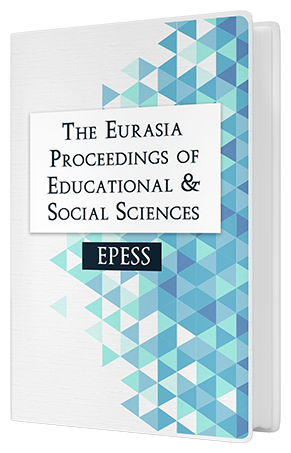The Problems Encountered in the Teaching of Social Studies in Turkey
Keywords:
Social studies ınstruction, Problem, EducationAbstract
The aim of social studies education is to improve the knowledge, attitudes and skills that the individual can use in solving the problems he / she may encounter and to be in harmony with the society with age. In addition, citizenship and responsibilities, the Turkish nation, to give love, respect and confidence to the flag and the Turkish army, to develop the skills of democratic life rules, to live together, to take responsibility, to help and to make decision-making skills, to rights and responsibilities against each other, The development of the technique is to train individuals who know that human beings will affect life. However, when we look at the studies conducted together, it seems that social studies are inadequate. The purpose of this study is; social studies in Turkey between the years 2014-2017 is to reveal the problems encountered in teaching. This study was prepared by qualitative research methods using document analysis technique. For this purpose, the relevant document was examined in the field. Document review involves the reorganization, synthesis and interpretation of subdivisions for the purpose of evaluating research based on a specific field and developing an information base. At the beginning of the research, it is seen that the most important problems are caused by the problems caused by the application of the curriculum and the lack of extracurricular activities. Suggestions are presented in the light of the obtained data.Downloads
Published
Issue
Section
License
Copyright (c) 2018 The Eurasia Proceedings of Educational and Social Sciences

This work is licensed under a Creative Commons Attribution-NonCommercial-ShareAlike 4.0 International License.
The articles may be used for research, teaching, and private study purposes. Any substantial or systematic reproduction, redistribution, reselling, loan, sub-licensing, systematic supply, or distribution in any form to anyone is expressly forbidden. Authors alone are responsible for the contents of their articles. The journal owns the copyright of the articles. The publisher shall not be liable for any loss, actions, claims, proceedings, demand, or costs or damages whatsoever or howsoever caused arising directly or indirectly in connection with or arising out of the use of the research material. All authors are requested to disclose any actual or potential conflict of interest including any financial, personal or other relationships with other people or organizations regarding the submitted work.




